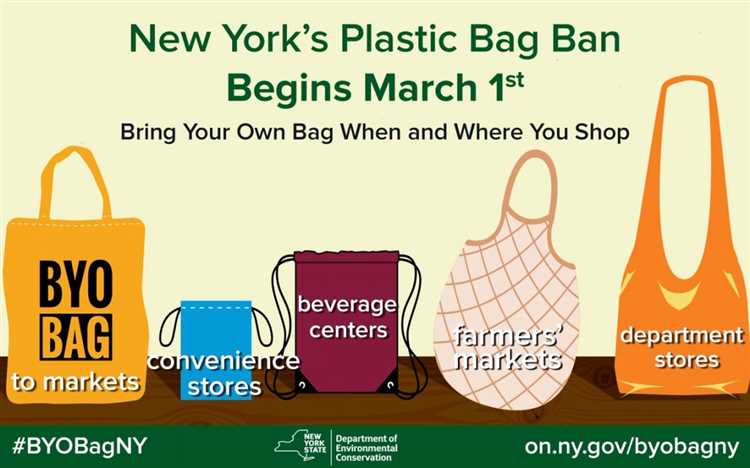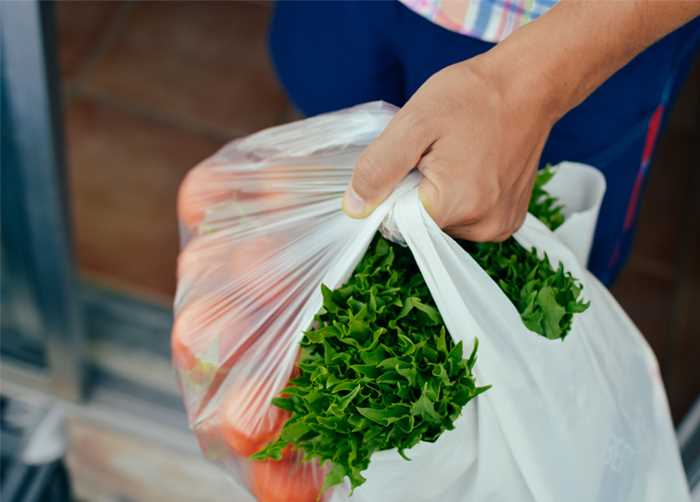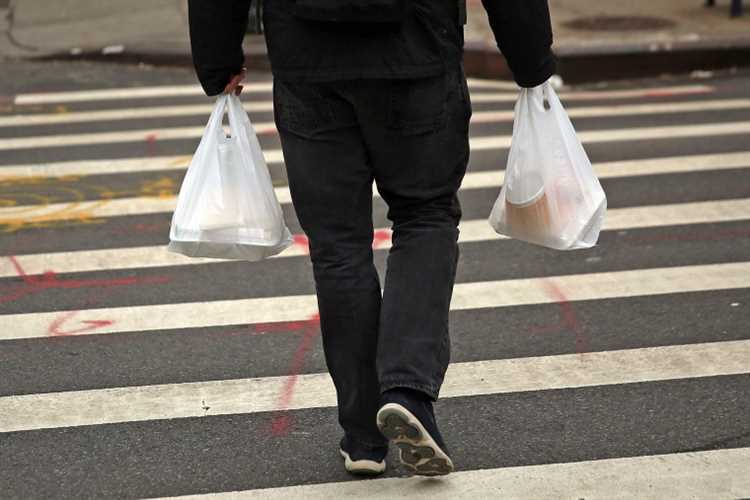Plastic bags have become an integral part of our daily lives. We use them for everything from grocery shopping to carrying our lunch to work. However, the convenience of plastic bags comes at a steep price for our environment. Plastic bags are not biodegradable and can take hundreds of years to break down. This means that every single plastic bag we use will be on this planet long after we are gone.
Furthermore, plastic bags are a major source of pollution. They often end up in our rivers, lakes, and oceans, where they pose a serious threat to marine life. Sea turtles mistake them for jellyfish and consume them, birds get entangled in them, and fish ingest microscopic particles of plastic, which eventually end up in our food chain.
By implementing a tax on plastic bags, we can strongly discourage their use and promote the adoption of more sustainable alternatives. The additional cost associated with plastic bags will make people think twice before reaching for one at the store. This can lead to a significant reduction in the amount of plastic bags being produced and used, ultimately reducing the amount of waste that ends up in our landfills and ecosystems.
- The Damaging Effects of Plastic Bags
- The Need for Behavioral Change
- Consumer Behavior
- Retailer Responsibility
- The Benefits of Taxing Plastic Bags
- Reducing Environmental Pollution
- FAQ:
- What are the negative effects of plastic bags on the environment?
- How does taxing plastic bags help the environment?
- Are there any countries or cities that have successfully implemented taxes on plastic bags?
- What are some alternatives to plastic bags?
- Are there any economic benefits to taxing plastic bags?
- Why should we tax plastic bags?
The Damaging Effects of Plastic Bags
Plastic bags have become an integral part of our daily lives, but their convenience comes at a high cost to the environment. These bags are made from non-biodegradable materials, which means that they don’t break down naturally and can persist in the environment for hundreds of years.
One of the most concerning effects of plastic bags is their impact on marine life. When plastic bags are not disposed of properly, they often end up in the ocean, where they pose a significant threat to marine animals. Sea turtles, for example, mistake plastic bags for jellyfish and consume them, leading to blockages in their digestive systems and ultimately death. Additionally, many marine animals become entangled in plastic bags, leading to suffocation or injuries that may prevent them from hunting or reproducing.
Plastic bags also contribute to environmental pollution. When they are improperly disposed of and end up in landfills, they can release toxic chemicals into the soil and water. These chemicals can contaminate groundwater and have negative effects on both human health and ecosystem health. Moreover, the production of plastic bags requires a considerable amount of energy and resources, contributing to greenhouse gas emissions and further exacerbating climate change.
The visual impact of plastic bags is another concern. They can be found littered on streets, beaches, parks, and other natural environments. Not only do they contribute to the degradation of these spaces, but they also create an unsightly and unappealing landscape. Plastic bags are often carried by the wind and can clog storm drains, leading to flooding and other related issues.
| Environmental Impact | Effects |
|---|---|
| Marine Life | Entanglement, ingestion, suffocation |
| Pollution | Release of toxic chemicals, contamination of soil and water |
| Climate Change | Greenhouse gas emissions from production |
| Visual Impact | Littering, degradation of natural environments |
Given these damaging effects, it is crucial to reduce the usage of plastic bags and promote more sustainable alternatives. One effective way to achieve this is through implementing taxes on plastic bags. By creating a financial disincentive, taxing plastic bags encourages individuals to bring their own reusable bags or opt for paper or biodegradable alternatives. This not only reduces the demand for plastic bags but also promotes a shift towards more sustainable consumer behavior.
In conclusion, plastic bags have a range of damaging effects on the environment, from endangering marine life to contributing to pollution and climate change. Taxing plastic bags is an important step in mitigating these effects and promoting a more environmentally-friendly future.
The Need for Behavioral Change

The environmental impact of plastic bags is undeniable, and it is clear that something needs to change. However, simply implementing a plastic bag tax is not enough to solve the problem entirely. What is also needed is a fundamental shift in the way we think about and use plastic bags.
Consumer Behavior

One of the main reasons why plastic bags continue to be a problem is due to consumer behavior. For many years, plastic bags have been seen as a convenient and free way to carry groceries and other items. This has led to a culture of overconsumption and single-use plastic bag usage.
In order to address this issue, it is important to raise awareness about the negative impacts of plastic bags and encourage consumers to change their habits. This can be done through educational campaigns, increased recycling programs, and incentives for reusable bag usage. By promoting reusable alternatives and highlighting the benefits of reducing plastic bag consumption, we can begin to modify consumer behavior towards more sustainable practices.
Retailer Responsibility
While consumer behavior plays a crucial role in the plastic bag problem, retailers also have a responsibility to make changes. Many businesses continue to offer free plastic bags without considering the environmental consequences. By implementing a plastic bag tax, retailers are encouraged to provide alternatives to customers and reduce their reliance on single-use bags.
Retailers can also play a role in promoting reusable bag usage by offering incentives such as discounts or rewards for customers who bring their own bags. Additionally, businesses can explore alternative packaging options and invest in sustainable practices that minimize their overall plastic waste.
| Benefits of Behavioral Change |
|---|
| – Reduction in plastic pollution |
| – Conservation of natural resources |
| – Protection of wildlife |
| – Improvement of overall environmental health |
By addressing consumer behavior and encouraging retailers to make changes, we can take significant steps towards reducing plastic bag usage and minimizing the harm caused to the environment. It is crucial that we recognize the need for behavioral change and work together to create a more sustainable future for our planet.
The Benefits of Taxing Plastic Bags
Taxing plastic bags can have a significant positive impact on the environment and our future. Here are some of the key benefits:
1. Reduces Plastic Waste: Plastic bags are a major source of pollution, with millions of them ending up in landfills and oceans each year. By imposing a tax on plastic bags, fewer bags will be used and ultimately discarded. This will help reduce the amount of plastic waste that is produced and improve overall environmental cleanliness.
2. Encourages Reusable Bags: By taxing plastic bags, consumers are incentivized to bring their own reusable bags when shopping. Reusable bags are a much more sustainable option, as they can be used multiple times and are less likely to end up as litter in the environment. This shift towards reusable bags helps promote a greener and more eco-friendly lifestyle.
3. Supports Recycling Initiatives: The revenue generated from plastic bag taxes can be used to fund recycling programs and infrastructure. Proper recycling facilities can help ensure that plastic bags are effectively recycled rather than being sent to landfills or ending up in the natural environment. This supports a circular economy where resources are reused and waste is minimized.
4. Protects Wildlife: Plastic bags pose a significant threat to wildlife, with many animals mistaking them for food or becoming entangled in them. By reducing the use of plastic bags through taxation, we can help protect wildlife habitats and minimize harm to marine life and other animals.
5. Promotes Sustainable Business Practices: Taxing plastic bags encourages businesses to adopt more sustainable practices. Businesses may opt for alternative packaging options or incentivize customers to use reusable bags by offering discounts or promotions. This not only benefits the environment but also aligns with consumer demand for eco-friendly products and services.
In conclusion, taxing plastic bags is a crucial step towards reducing plastic pollution and building a more sustainable future. The benefits of this approach are wide-ranging, from reducing plastic waste and protecting wildlife to promoting reusable bags and supporting recycling initiatives. By recognizing the importance of taxing plastic bags, we can take meaningful action to safeguard our environment for future generations.
Reducing Environmental Pollution

Plastic pollution is one of the biggest challenges our environment faces today. The proliferation of single-use plastic bags has contributed significantly to this problem as they are discarded carelessly and end up in landfills, oceans, and other natural habitats.
By taxing plastic bags, we can effectively reduce their usage and subsequently decrease environmental pollution. When plastic bags are taxed, consumers become more conscious of their choices and are more likely to opt for reusable alternatives such as cloth bags or paper bags. This shift in behavior helps to minimize the production and consumption of single-use plastic bags.
Reducing the use of plastic bags leads to a significant decrease in the amount of plastic waste generated. With fewer plastic bags being discarded, the chances of them ending up in landfills or polluting natural environments are greatly reduced. This, in turn, helps to safeguard the health of ecosystems, wildlife, and the overall biodiversity of our planet.
Furthermore, reducing plastic pollution has a positive impact on our oceans. Plastic bags that end up in the oceans can cause serious harm to marine life. Sea turtles and seabirds often mistake them for food and die from ingestion or entanglement. By curbing the use of plastic bags, we can protect marine life and preserve the delicate balance of our marine ecosystems.
In addition, plastic pollution also affects human health. Chemicals released from decomposing plastic can contaminate soil and water sources, posing a risk to both humans and animals. By reducing the use of plastic bags, we can minimize this contamination and create a safer environment for all living beings.
In conclusion, taxing plastic bags is a crucial step in reducing environmental pollution. By decreasing their usage, we can mitigate the harmful effects of plastic on ecosystems, marine life, and human health. It is time for individuals, governments, and businesses to come together and take collective action to protect our environment and secure a sustainable future.
FAQ:
What are the negative effects of plastic bags on the environment?
Plastic bags have a number of negative effects on the environment. They are made from non-renewable resources such as crude oil, contribute to greenhouse gas emissions during production, and take hundreds of years to decompose in landfills. When not properly disposed of, plastic bags can end up in rivers, oceans, and other natural habitats, causing harm to marine life and other animals. They also contribute to the problem of litter, clogging drains and polluting the landscape.
How does taxing plastic bags help the environment?
Taxing plastic bags is an effective way to reduce their usage. When people have to pay for plastic bags, they are more likely to bring their own reusable bags or opt for alternatives such as paper bags. This reduces the demand for plastic bags and consequently decreases the amount of plastic waste generated. Over time, this can lead to a significant reduction in the negative environmental impact associated with plastic bags, including carbon emissions, pollution, and litter.
Are there any countries or cities that have successfully implemented taxes on plastic bags?
Yes, there are several countries and cities that have successfully implemented taxes on plastic bags. For example, Ireland introduced a plastic bag tax in 2002, which resulted in a 95% reduction in plastic bag usage. Similarly, countries such as Denmark, Norway, and Germany have implemented taxes or bans on plastic bags, leading to significant decreases in their consumption. In the United States, cities like San Francisco and Seattle have also implemented successful plastic bag taxes.
What are some alternatives to plastic bags?
There are several alternatives to plastic bags that are more environmentally friendly. One option is to use reusable bags made from materials such as cotton, canvas, or recycled materials. These bags are durable and can be used multiple times, reducing the need for single-use plastic bags. Another option is to use paper bags, although it’s worth noting that these also have environmental impacts, as they require energy and resources to produce. Some stores have also started offering biodegradable or compostable bags made from plant-based materials, which can be a more sustainable option.
Are there any economic benefits to taxing plastic bags?
Yes, there can be economic benefits to taxing plastic bags. Firstly, it can generate revenue for the government, which can be used for various purposes such as environmental conservation or public services. Secondly, taxing plastic bags can encourage businesses and consumers to adopt more sustainable practices. This can drive innovation in the production of alternative bags, creating new economic opportunities. Additionally, reducing the use of plastic bags can save businesses and municipalities money by decreasing the costs associated with waste management and litter cleanup.
Why should we tax plastic bags?
Taxing plastic bags is important for the environment because it helps reduce the usage of single-use plastic bags. These bags are a major source of pollution and have a negative impact on wildlife and ecosystems. Taxing them encourages people to opt for reusable bags or alternative eco-friendly options, thereby reducing plastic waste and promoting a more sustainable lifestyle.